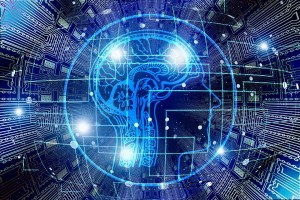Artificial Intelligence Is About to Plateau
- At February 10, 2020
- By rbadmin
- In Uncategorized
 0
0
According to the BBC, researchers believe we may be on the cusp of what they call an artificial-intelligence winter, with AI only being able to perform a narrow set of tasks well.
There’s a discernible pattern here. The hype around AI has peaks and valleys. Some describe the peaks as “AI summers” and the valleys as “AI winters.” Those labels only make sense, though, if you’re describing the hype. AI abilities don’t decline during winters the way the outdoor temperatures drop. Only the hype exhibits an objective decline.
When thinking about or describing AI itself, the word “plateau” works much better. And we should expect periodic plateaus in the development of AI abilities. Moore’s Law, which states that the number of transistors in integrated circuits doubles every two years or so, doesn’t apply here. AI simply cannot advance exponentially.
Moore’s Law is strictly limited to circuit development. It can’t apply to AI any more than it can apply to your golf game, your ability to learn how to play the guitar, or the speed at which you can master higher math. Not only is progress in those areas not exponential, it’s not even linear. Ask any golf pro or rock star about their progress, and they’ll tell you that they repeatedly plateaued for a period of time before their next breakthrough, after which they plateaued again for a while.
It looks like that’s exactly what’s happening now with AI. The hype hasn’t quite died down yet, but it’s about to. And it needs to. A decade ago, talk of machines becoming smarter than humans was everywhere, most famously with Ray Kurzweil’s book The Singularity Is Near. Yet machines still can’t even edit a blog post properly let alone run the world. Software like Grammarly and Microsoft Word will destroy a piece of writing if given free rein to make editorial changes. They are both wrong up to 95 percent of the time. You’re better off not using them at all than accepting every suggested edit. You certainly won’t want to upload your consciousness to a computing cloud that can’t properly clean up a sentence.
Meanwhile, a whole swath of the general public, steeped in sinister dystopias like The Matrix and The Terminator, fear that artificial intelligence may well wipe out humanity entirely at some point. Less pessimistic scenarios have robots destroying nearly every job imaginable, menial and professional alike, leaving us to live like demoralized, unemployed house pets in the best-case scenario.
With the hype gearing up to go into remission, doomsday fantasies will hopefully follow.

